Ethics and Risk Management in Behavioral Health – Frederic G. Reamer (Digital Seminar)
Description
Watch Attorney Robert Landau and Dr. Frederic Reamer as they collaborate to deliver an interactive, dynamic presentation on ever-changing ethics and risk-management challenges in behavioral health.
Keeping up-to-date is essential to protect your clients and yourself. During this workshop you will gain an understanding of ethics and risk-management challenges related to:
- Confidentiality exceptions
- Privileged communication
- Documentation
- Telehealth
- Informed consent
- Boundary issues
- Recent changes to federal regulations governing confidentiality of substance use disorder patient records
- And other complex topics
Landau and Dr. Reamer will highlight ethics and risk-management challenges related to your use of technology to deliver services remotely, communicate with clients, and store records.
This is a workshop you do not want to miss…as both presenters will offer practical advice from both the legal and behavioral health points of view to help you stay on top of issues that arise in everyday clinical situations.
Outline:
INTRODUCTION AND OVERVIEW: KEY ISSUES
- Understand the legal system
- Legal exposure
- Establish the treatment relationship
- Record-keeping practices
- The ethics of duty to warn/protect
- Local and national resources
- Multiculural awareness & diversity
ETHICS AND RISK MANAGEMENT: THE LEGAL PERSPECTIVE
- Insurance coverage: The essentials
- Importance of documentation:
- It really matters!
- Tips to avoid and defend lawsuits and licensing board complaints: Practical advice
- Key risk areas: What to look out for
- Importance of peer, ethics, and legal consultation
- Responding to subpoenas: Do’s and don’ts
- Working with attorneys
ETHICS AND RISK-MANAGEMENT: THE BEHAVIORAL HEALTH PERSPECTIVE
- Trends in malpractice claims and ethics complaints: Ethical mistakes, ethical decisions, misconduct
- Ethical challenges and risks: Essential knowledge
- Confidentiality, privacy, privileged communication
- Informed consent
- Boundary issues, dual relationships, and conflicts of interest
- Digital, online, and remote services and relationships
- High-risk treatment and services
- Termination of services
- Defamation
- Documentation
- Impaired professionals
- Ethics consultation and ethics committees
- Handling difficult ethical judgments and decisions: Protecting clients and practitioners
FITNESS – HEALTH – MEDICAL Course
More information about Medical:
Medicine is the science and practice of establishing the diagnosis, prognosis, treatment, and prevention of disease.
Medicine encompasses a variety of health care practices evolved to maintain and restore health by the prevention and treatment of illness.
Contemporary medicine applies biomedical sciences, biomedical research, genetics, and medical technology to diagnose, treat, and prevent injury and disease,
typically through pharmaceuticals or surgery, but also through therapies as diverse as psychotherapy, external splints and traction, medical devices, biologics, and ionizing radiation, amongst others.
Medicine has been around for thousands of years, during most of which it was an art (an area of skill and knowledge) frequently having connections to the religious and
philosophical beliefs of local culture. For example, a medicine man would apply herbs and say prayers for healing, or an ancient philosopher and physician would apply bloodletting according to the theories of humorism.
In recent centuries, since the advent of modern science, most medicine has become a combination of art and science (both basic and applied, under the umbrella of medical science).
While stitching technique for sutures is an art learned through practice, the knowledge of what happens at the cellular and molecular level in the tissues being stitched arises through science.
Preview Information:
Original Page
Add more Author:
Frederic G. Reamer, PhD, has been a professor in the graduate program of the School of Social Work, Rhode Island College, Providence, Rhode Island, for over 30 years. Dr. Reamer received his PhD from the University of Chicago and has served as a social worker in correctional and mental health settings. He chaired the national task force that wrote the current National Association of Social Worker’s Code of Ethics.
Dr. Reamer lectures both nationally and internationally on the subjects of professional ethics and professional malpractice and liability. In addition to ethics, his research and teaching have addressed a wide range of human service issues, including mental health, health care, criminal justice, and public welfare. Dr. Reamer has conducted extensive research on professional ethics and has been involved in several national research projects sponsored by The Hastings Center, Carnegie Corporation, Haas Foundation, and Center for Bioethics of the University of Pennsylvania.
He is the author of chapters on professional ethics in the Encyclopedia of Social Work, the Encyclopedia of Bioethics, and the Encyclopedia of Applied Ethics, and is the author of many books, including: Risk Management in Social Work: Preventing Professional Malpractice, Liability, and Disciplinary Action; Boundary Issues and Dual Relationships in the Human Services; The Social Work Ethics Audit: A Risk Management Tool and his latest, On the Parole Board: Reflections on Crime, Punishment, Redemption, and Justice.
Speaker Disclosures:
Financial: Frederic Reamer is a Professor, School of Social Work, for Rhode Island College.
Non-financial: Frederic Reamer is a member of the National Association of Social Workers.
More Course: NLP – HYPNOSIS – PHILOSOPHY
Outstanding CoursAdvanced Grief Counseling Certification Training Course – PAUL BRASLER (Online


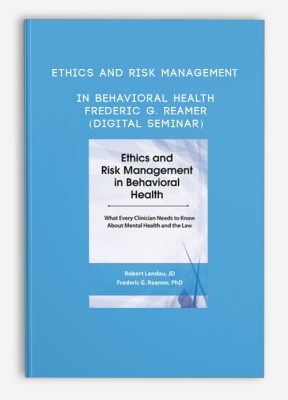
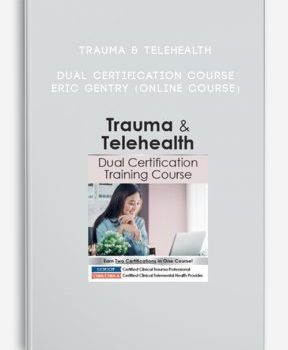

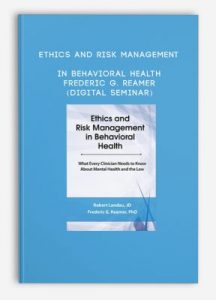

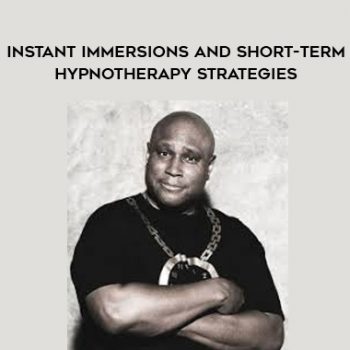



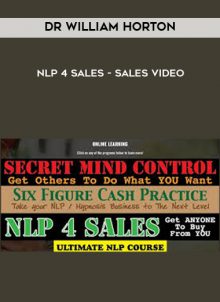


Lord –
This is Digital Download service, the course is available at Coursecui.com and Email download delivery.